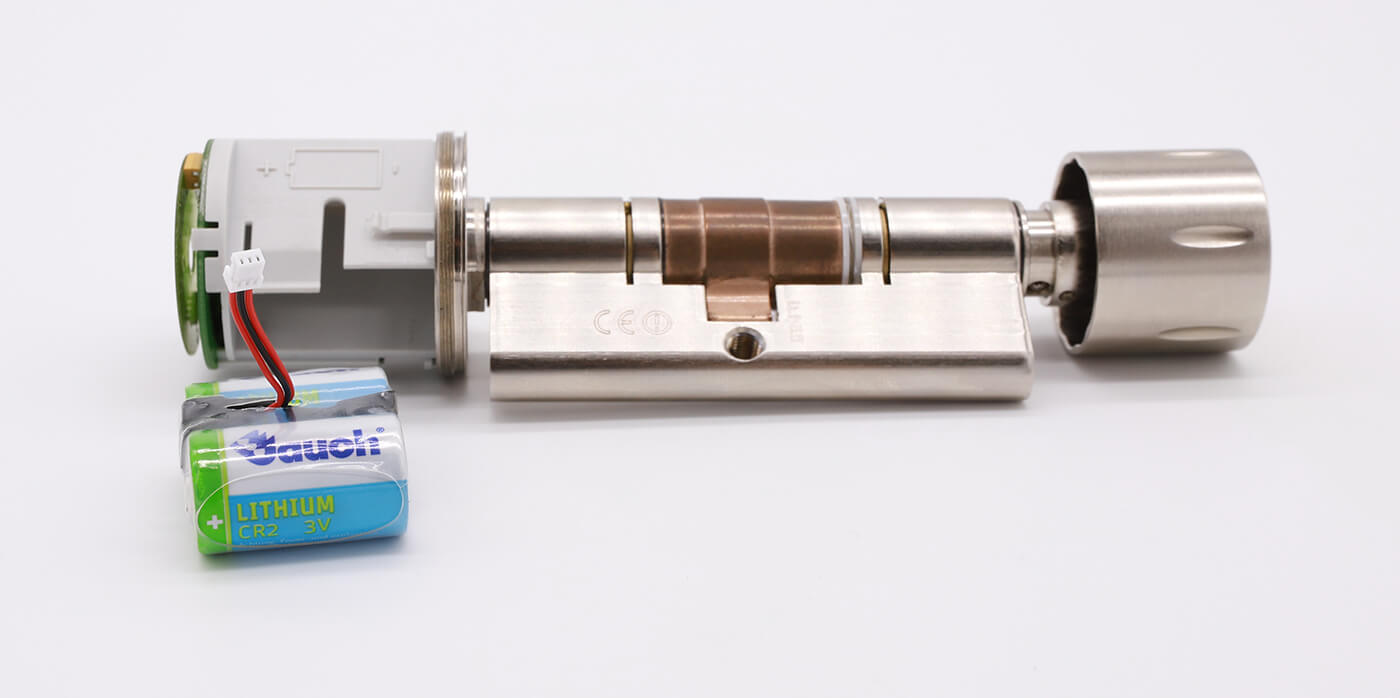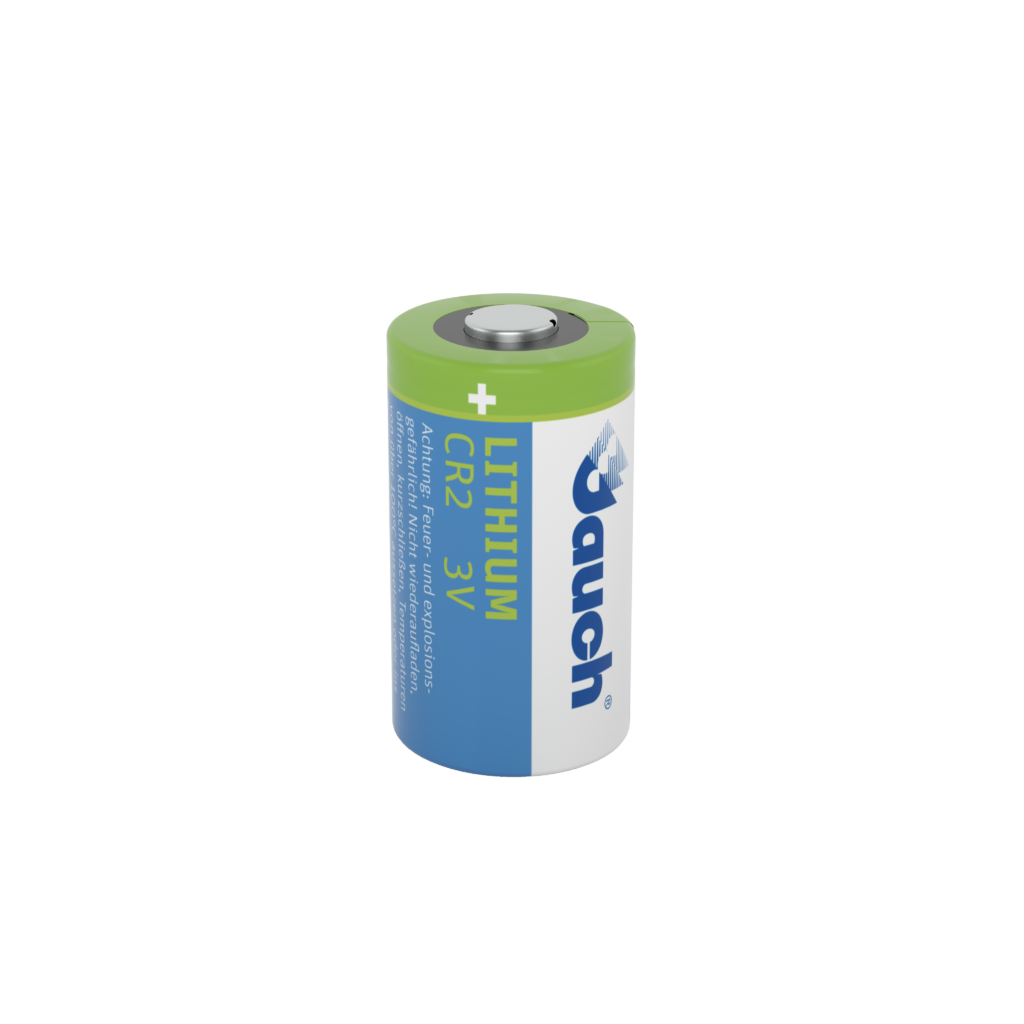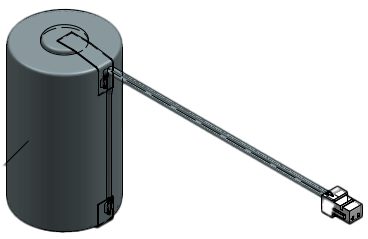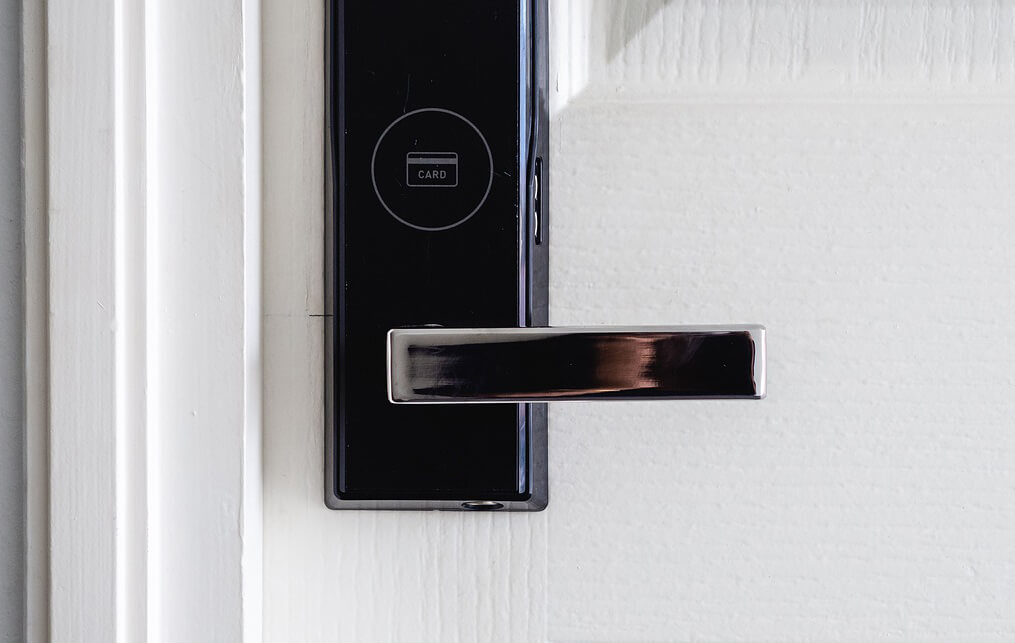
Electronic locking cylinders have long since replaced mechanical locks in many companies. Not the key, but the transponder or key card is granting access to the company building. In private homes, too, the trend is moving towards the electronic lock. Depending on the product and manufacturer, door locks can even be opened by cell phone.
The demand for electronic locking cylinders or locking systems is high, so various manufacturers are pushing the development of new designs accordingly. Although the approaches vary, there’s one key feature that all developments have in common: all designs rely on lithium batteries.
Battery Solutions for Different Designs
“The spectrum of batteries used ranges from lithium thionyl chloride batteries (ER), cylindrical lithium manganese dioxide batteries (CR) and button cells (CR) to lithium iron sulfide batteries (FR),” says Jérémie Deloof, who oversees numerous customer projects in this field at Jauch Quartz. Which of these cell chemistries is ultimately used depends on various factors, such as the application’s design and its power requirements.
CR2 Batteries as “State-of-the-Art”-Solution for Locking Cylinders

“The vast majority of current locking cylinder models use cylindrical CR batteries,” explains Jérémie Deloof. These cells offer a comparatively high cell voltage of 3 volts and convince with a reliable pulse performance. “Many of our customers use CR2 cells of our battery brand ‘Jauch’. These enable continuous discharge currents of up to 20 mA and of course even higher pulse currents.” Depending on the model, between 20,000 and 70,000 closing cycles are possible, which corresponds to a battery life of between one and a half and three years.
Customized Battery Packs and ER Batteries for High Power Demand
However, sometimes a CR2 battery is not sufficient to cover the power requirements of the locking cylinder. “In this case we have two options: If there is sufficient space for the battery compartment in the application, we can connect two CR2 cells together to form a battery pack. We develop the appropriate design of the pack right here in our German headquarters,” explains Jérémie Deloof.

If, on the other hand, there is not enough space, we recommend using a lithium thionyl chloride (ER) battery. These batteries have the highest energy density of all primary lithium batteries. For example, an ER14250 battery of the “Jauch”-brand allows continuous discharge currents of up to 200 mA. Thanks to their low self-discharge rate of less than 1% per year, these batteries also have an even longer service life than CR batteries.
Where To Find Replacement Batteries For Locking Cylinders
However, even the most durable battery reaches the end of its service life at some point. A battery change becomes due. In most models, the batteries are located directly in the door knob and can be easily replaced by the end user. The crux of the matter, however, lies in the procurement of the appropriate replacement battery.
If the cylinder is powered by an ER battery or CR2 battery pack, the end user has little choice but to purchase the required replacement directly from the manufacturer. In contrast, individual CR2 batteries are readily available from relevant online retailers. In most cases, however, it is advisable to rely on the batteries provided by the manufacturer anyway. The reason for this is the so-called “Chemical Switch”.
Chemical Switch – Industrial vs. Consumer Battery
“Talking about CR2-cells, you always have to distinguish between consumer and industrial batteries,” explains Jérémie Deloof. “Most online retailers offer consumer cells only, that are all equipped with a Chemical Switch”. This protective mechanism prevents deep discharge of the cell. If the cell voltage falls below a certain threshold, the cell switches off immediately and the current flow stops. Even if there was still capacity, the battery is useless from that moment on.
As useful as this chemical switch is in the consumer sector, it is an absolute knockout criterion for the use of corresponding batteries in locking cylinders. A door lock that cannot be opened anymore from one moment to the other? Unthinkable! “For this reason, we at Jauch only offer industrial batteries without Chemical Switch. This saves the end user unpleasant surprises and also makes it easier to program the battery management system to optimize the replacement intervals,” says Jérémie Deloof.
In terms of battery replacement, it is thus safe to say that if you need an ER or CR2 cell, it’s always best to contact the manufacturer directly.
Lithium Button Cells for Simple Locking Systems
Electronic locking mechanisms do not only secure the entrance doors of companies and private homes. Numerous hotel chains, for example, have already equipped their room doors with electronic locks some time ago. Many swimming pools and fitness studios also secure their lockers with electronic locking systems.

These locks are usually much less complex than the locking cylinders described above. “The power requirement of these applications is correspondingly lower and can already be covered by a lithium button cell. We usually recommend a CR2450 cell of our ‘Jauch’-brand to our customers. With a continuous discharge current of 4 mA, these cells are ideally suited for many simple locking systems,” says Jérémie Deloof. CR2450 cells also save a lot of space and are easy to procure and replace by the end user.
The same applies to lithium iron sulfide batteries. However, due to their cylindrical design and the low cell voltage of 1.5 volts, these batteries are rarely found in electronic locking systems. “If you’re looking for an easily replaceable battery solution, a button cell is the better choice in most cases,” says Jérémie Deloof.
Jauch Quartz: The Right Solution for All Requirements
As different as the requirements of the individual locking cylinders are, Jauch Quartz offers the right solution for all designs. The portfolio ranges from ER and CR batteries to lithium button cells and individual battery packs tailored to customer designs.
Are you also looking for a reliable power supply for your locking system? We are happy to provide you with samples of our CR and ER batteries. Just follow the link below and place your order!
Your Contact
Of course, we would also be happy to talk to in person about your application and its requirements!

Jérémie Deloof, Sales Manager
jeremie.deloof@jauch.com
+49 7720 945 177
https://www.linkedin.com/in/jeremie-deloof/


 Deutsch
Deutsch 



